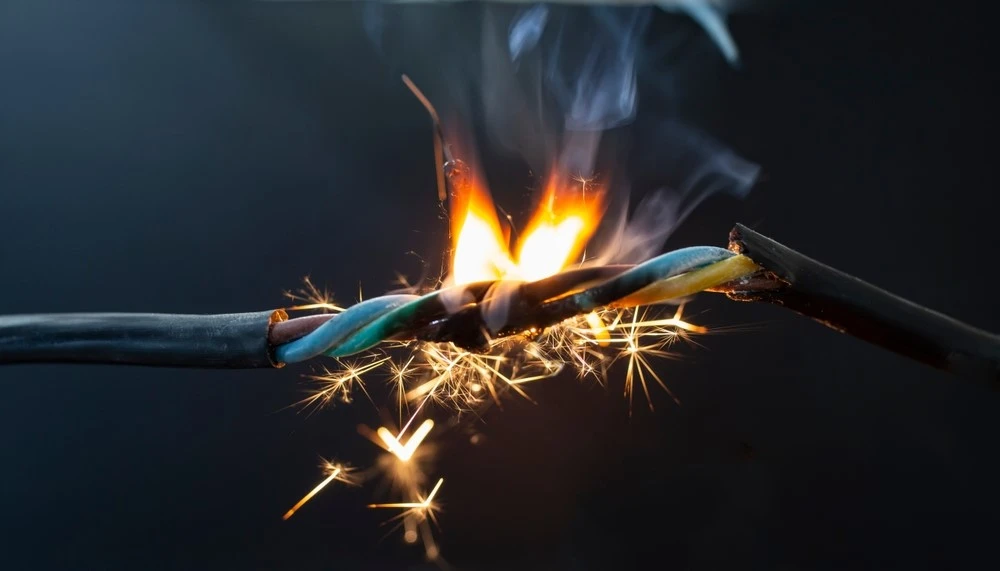Here are 10 electrical safety tips, because our everyday existence is not possible without electricity, which runs everything from our lights to our appliances. However, if not handled properly, it also presents serious safety dangers. To avoid mishaps and guarantee that the electrical system in their house runs effectively and safely, all homeowners should be knowledgeable about fundamental electrical safety procedures. The top 10 electrical safety tips and recommendations that every homeowner should be aware of are included in this thorough guide. By adhering to these recommendations, you may safeguard your family and house against possible dangers.
1. Examine electrical outlets and cords on a regular basis
This Is Important because fires, short circuits, and electrical shocks can result from frayed or damaged electrical cords. Inspections on a regular basis aid in spotting possible issues before they worsen.
What to Do: Look for wear and tear on all electrical wires.
As soon as possible, replace any broken cables. Also make sure there aren’t too many plugs in the outlets.
2. Refrain from overloading outlets
Why It Matters: Electrical fires can result from outlets that are overloaded because they can overheat. Every outlet is made to support a certain weight in electrical power.
What to Do: To manage many plugs, use power strips with surge protectors. Spread out your electrical equipment among several outlets. Do not daisy-chain power strips together.
3. Make Sure Lamps and Fixtures Are the Correct Wattage
Why It Matters: Choosing the incorrect wattage can lead to overheating and even a fire. Make sure that the lightbulbs you use fit the recommended wattage of your fixtures and lights.
How to Proceed: Verify the highest wattage rating found on your lights and light fixtures and opt for LED lamps that consume less energy and produce less heat.
4. Keep Electrical Equipment Out of the Water
Why It Matters: Combining electricity and water can be hazardous. Electrical shocks and damage can be avoided by keeping electrical items away from water sources.
What to Do: Keep electrical equipment away from bathtubs, sinks, and swimming pools. Install ground fault circuit interrupters, or GFCIs, in bathrooms and kitchens and other locations where water and electricity are likely to come into contact.
5. Install Ground Fault Circuit Interrupters (GFCIs)
GFCIs are meant to prevent electrical shock by cutting power when a fault is identified. This is Why It Matters. They are particularly crucial in regions with a lot of precipitation.
What to Do: Install GFCIs in outdoor outlets, garages, restrooms, and kitchens. Every month, test GFCIs to make sure they are operating properly.
6. Exercise Caution When Using Extension cables
Extension cables are designed to be used temporarily. Overuse might result in overheating and a higher fire risk.
What to Do: Never use extension cords as a permanent fix; instead, use them sparingly. Select cables based on the power requirements of the devices that are connected. Do not place extension cords under furniture or rugs.
7. Unplug Appliances While Not in Use
It matters because by unplugging appliances, you can lower energy usage and prevent electrical fires. Make it a practice to unplug small equipment like coffee makers and toasters when not in use. To conveniently manage and plan the power supply to your gadgets, use smart plugs.
8. Recognize the Warning Symptoms of Electrical Issues
Why It Matters: Safety may be ensured and more serious problems can be avoided by identifying electrical faults early. Being aware of warning indicators enables prompt action.
What to Do: Keep an eye out for outlets that buzz, flickering lights, or circuit breakers that trip frequently. Check outlets and switches for strange warmth as this may be a sign of an issue. If you see any of these warning indicators, get in touch with a qualified electrician.
9. Comply with the manufacturer’s instructions when using appliances
This Is Important as appliance misuse might result in safety risks and failures. Operating safely and effectively is ensured by adhering the product instructions.
What to Do: For every device, read and abide by the manufacturer’s instructions. Register your appliances to get information about recalls and safety updates.
10. Arrange for Continual Electrical Examinations
The electrical system in your house is safe and compliant with code when it is inspected on a regular basis by a qualified electrician. They are able to recognize possible problems and take action before they worsen.
What to Do: Arrange for an electrical check every few years, or right away if you suspect a problem. Make sure the inspection is carried out by a qualified specialist.
For any household, electrical safety is essential. By learning these electrical safety tips, you can guarantee the effectiveness and safety of your home’s electrical system and drastically lower the chance of electrical mishaps by adhering to our top ten electrical safety rules. Consider contacting professionals like 247-Emergency Electrician if you have any questions or need professional electrical services. Their extensive offerings can support keeping your house secure and functional.
